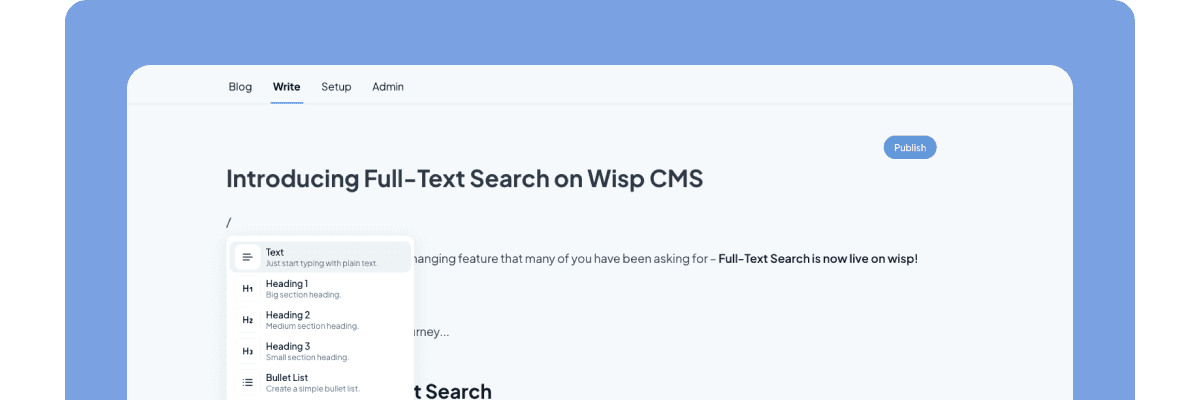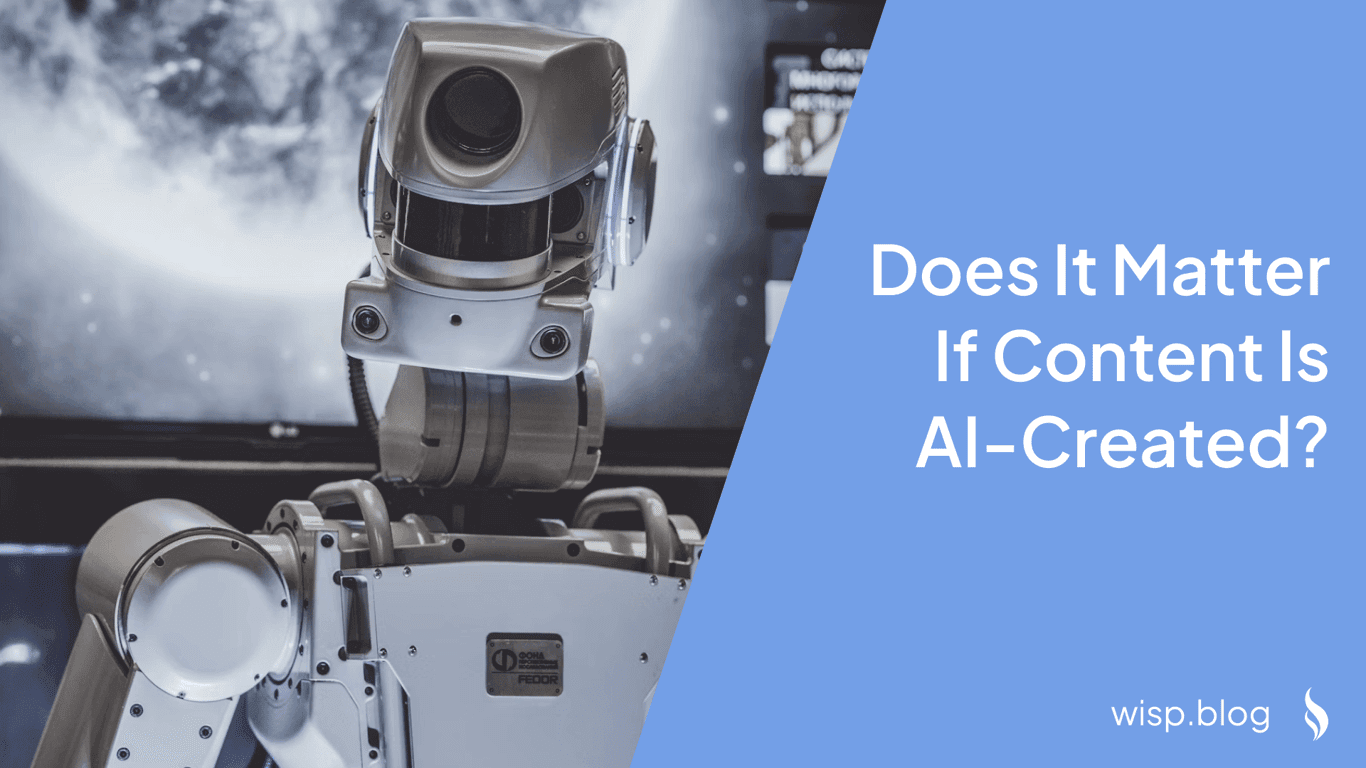
You've just invested in AI writing tools to scale your content production, but now you're anxiously checking your analytics, worried that Google might penalize your website. Every time Google announces an algorithm update, your heart skips a beat. Will your AI-generated content suddenly disappear from search results? Are you risking your entire SEO strategy?
These concerns aren't unfounded. According to recent discussions on Reddit, many content creators have reported traffic drops after publishing AI content, while others claim their AI-assisted articles rank perfectly well. This conflicting information has created a cloud of uncertainty around AI content and its relationship with Google's algorithms.
The frustration is real. As one content creator puts it, "AI content is awful. I hate googling something and getting results that tell me to go to a nonexistent setting or screen to accomplish a task." This sentiment reflects a growing concern about the quality and reliability of AI-generated content flooding the internet.
But here's what might surprise you: Google's stance on AI content isn't as black and white as many believe. In fact, according to Google's official guidelines, the search engine giant doesn't inherently penalize content simply because it's AI-generated. Instead, their focus remains steadfastly on content quality and user value, regardless of how that content was created.
The Truth About Google and AI Content
Google's approach to AI-generated content has evolved significantly over the years. Initially met with skepticism, AI content has become increasingly sophisticated and prevalent. According to Search Engine Land, Google has shifted from viewing AI content as potential spam to adopting a more nuanced stance that prioritizes quality over production method.
This evolution makes sense when you consider the rapid advancement of AI technology. ChatGPT set records for the fastest-growing user base in history, demonstrating the widespread adoption of AI tools in content creation. With such widespread use, Google had to adapt its approach to focus on what truly matters: the value provided to users.
However, this doesn't mean all AI content gets a free pass. As one experienced SEO professional notes on Reddit, "Much of the content produced by AI is low quality, mostly because AI cannibalizes itself badly. Often says things no human would say." This observation points to a crucial distinction: Google doesn't penalize AI content per se, but it does penalize low-quality content, regardless of its origin.
What Google Actually Looks For
When evaluating content, Google's algorithms focus on several key factors that determine quality and relevance:
1. Content Quality and Expertise
According to Google's guidelines, content must demonstrate:
Deep understanding of the subject matter
Original insights and analysis
Accurate and up-to-date information
Clear value proposition for readers
2. User Intent Alignment
Content must effectively address user needs and search intent. As highlighted in Search Engine Journal, this means:
Providing comprehensive answers to user queries
Offering practical, actionable information
Maintaining relevance throughout the content
Avoiding generic, surface-level information
3. User Experience Signals
Google pays attention to how users interact with your content:
Time spent on page
Bounce rates
User engagement metrics
Return visits
The Real Risks of AI Content
While Google doesn't explicitly penalize AI content, there are several pitfalls that can lead to poor performance in search results:
1. Content Cannibalization
As one Reddit user astutely observes, "Google is penalizing content that cannibalizes other pages or are making things up. AI is cannibalizing and making things up." This highlights a common issue where AI tools:
Regurgitate existing content without adding value
Create multiple similar versions of the same information
Generate factually incorrect or misleading content
2. Lack of Original Insight
According to Transifex's analysis, purely AI-generated content often struggles with:
Providing unique perspectives
Sharing first-hand experiences
Offering industry-specific insights
Creating emotional connections with readers
Best Practices for Using AI Content
To ensure your AI-generated content performs well in Google search results, consider these proven strategies:
1. Hybrid Approach to Content Creation
As emphasized by successful content creators on Reddit, "It's all about quality. Research it, and develop it with AI, but the whole content requires manual editing to make it great for viewers." This hybrid approach involves:
Using AI for initial drafts and research
Adding human expertise and personal insights
Fact-checking and verifying all information
Incorporating real-world examples and experiences
2. Quality Control Measures
Implement a robust quality control process:
Verify all facts and statistics
Add original research and data
Include expert quotes and citations
Ensure logical flow and coherence
3. Focus on User Value
According to Dentsu's 2023 report, 77% of consumers believe brands should avoid biases in AI content. To meet these expectations:
Address specific user pain points
Provide actionable solutions
Include real-world examples
Maintain transparency about AI usage
Success Stories and Cautionary Tales
The effectiveness of AI content varies significantly based on implementation:
Success Stories:
Content creators reporting first-page rankings for AI-assisted content with proper human editing
Businesses successfully scaling content production while maintaining quality
Improved content consistency and coverage across topics
Cautionary Tales:
Sites experiencing traffic drops after publishing unedited AI content
Penalties for content that provides incorrect or misleading information
Loss of reader trust due to generic, unhelpful content
Future-Proofing Your Content Strategy
As AI technology continues to evolve, staying ahead of Google's quality requirements becomes increasingly important. Here's how to future-proof your content strategy:
1. Maintain Transparency
Be honest about your use of AI tools:
Disclose AI usage when appropriate
Focus on providing value regardless of creation method
Build trust through quality and accuracy
2. Continuous Quality Improvement
Stay vigilant about content quality:
Regularly audit and update existing content
Monitor performance metrics
Gather and incorporate user feedback
Adapt to algorithm updates
3. Balance AI and Human Input
As one successful content creator shares on Reddit, "Many of those blogs were written using Chat-GPT but they include a human touch too which is done by me." This balanced approach ensures:
Efficient content production
Maintained quality standards
Unique value proposition
Authentic voice and perspective
Conclusion
Google doesn't penalize AI content simply for being AI-generated. Instead, it evaluates content based on quality, relevance, and value to users. The key to success lies not in avoiding AI tools altogether but in using them responsibly while maintaining high standards for quality and user experience.
To succeed with AI content:
Focus on creating value for your audience
Implement proper quality control measures
Maintain a balance between AI efficiency and human insight
Stay updated with Google's guidelines and best practices
Remember, as Google's guidelines emphasize, the focus should always be on creating helpful, reliable content that serves your audience's needs, regardless of how it's produced.
By following these guidelines and maintaining a commitment to quality, you can effectively use AI tools to enhance your content strategy while staying in Google's good graces.



